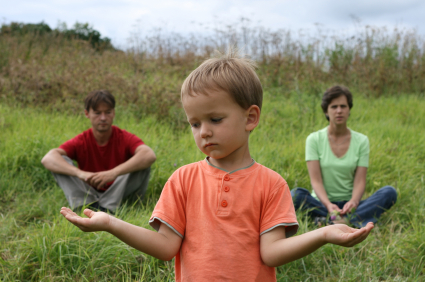Many complex divorce and custody cases involve mediation sessions, appointments with custody evaluators and guardians ad litem, along with stressful court hearings. Sometimes neglected in the process of divorce is consideration for how the children in the family are faring while the divorce is being processed. In my practice, I want my clients to be actively attentive to the emotional and psychological needs and changes that appear in the children, and to be responsive to those needs and changes. Sometimes a good clinician, such as a counselor or therapist, can be very beneficial for children in divorce; if the kids can weather the divorce well, the family as a whole has a better outcome.
So, what kinds of behaviors or appearances should a parent be looking for in their child? Rosalind Sedacca, CCT, has just written on this issue and her checklist is very useful. Check to see if:

1. They look, behave and talk as they always have.
Divorce can be devastating for kids, often resulting in anxiety, fears, hurt, anger, guilt and other negative emotions. If your children are interacting with you and moving through their days pretty much as usual, that’s a good sign. Look for any noticeable changes in mood and behavior and address them early on.
2. They still smile, and react positively to time spent with you.
Angry kids find it hard to hide their emotions and try to avoid contact with their parents. They may get spiteful, aggressive and belligerent or withdraw into their own space and try to ignore you. Happy kids welcome your attention and enjoy being with you – as they were before the divorce.
3. They ask questions about the divorce and changes ahead.
Depressed kids don’t talk alot and seem disconnected from daily reality. It’s okay for your kids to be concerned about what’s ahead, how their other parent is doing and other issues during and after divorce. Encourage conversations with your children and answer their questions honestly – but in an age-appropriate manner. Never bad-mouth their other parent no matter how justified you may feel.
4. They feel comfortable talking about experiences with both parents.
Well-adjusted kids are not intimidated or afraid to share stories about time spent with either parent. That’s because their parents keep communication open, don’t compete for their attention and never fill them with guilt or shame about loving their other parent.
5. They maintain momentum at school.
Dropping grades or school aggression are signs of problems that may not be apparent otherwise. Talk to your child’s teachers and school counselors. Also talk to your children directly to find out what’s going on with them and how they feel about the changes in their lives. Listen and let them vent so you learn how you can help.
6. They maintain healthy relationships with their friends.
When children lose close friendships after a divorce it’s often due to feelings of embarrassment, shame, guilt, anger or confusion. They feel helpless at home and express their frustrations with friends who may not be able to understand and support them when they need it most. A child therapist can be a big asset for them.
7. They continue with sports, classes or other activities.
Happy children enjoy their after-school classes, clubs, sports and other programs. If they drop out of activities they used to love, that’s a red flag that they aren’t coping well with challenges at home. Time to check with a counselor and/or support group for assistance.
8. They show empathy and compassion for others.
Well-adjusted kids express caring emotions when others are hurting. Disturbed children will act out with siblings, friends, pets and others showing little concern about their feelings. Kids upset about divorce lose their ability to be caring and compassionate, a warning sign that they may be in distress.
9. They talk about the future.
Children who are excited about events ahead: birthday celebrations, holidays, vacations, future school activities and learning new skills are in a positive mind-set about their world. If they’ve lost their enthusiasm for life, that’s a sign of depression and something to look into immediately.
10. They welcome signs of affection from their parents.
Well-adjusted kids are happy to give and receive hugs, kisses, words of encouragement and other signs of affection from their parents. If they avoid contact and don’t respond to your words and expressions of love, they’re sending a distress message you need to address.
When parents have a healthy attitude about life after divorce their children are more likely to move ahead in a positive way. If you’re having issues that are affecting your children, seek professional assistance as soon as possible. Attending to their needs early on can make the difference between short-term snags and long-term problems that impact your children emotionally and psychologically for decades to come.
*** *** ***
Rosalind Sedacca, CCT, is a Divorce & Parenting Coach and author of How Do I Tell the Kids about the Divorce? A Create-a-Storybook Guide to Preparing Your Children – with Love!
 Illinois Divorce Lawyer Blog
Illinois Divorce Lawyer Blog

